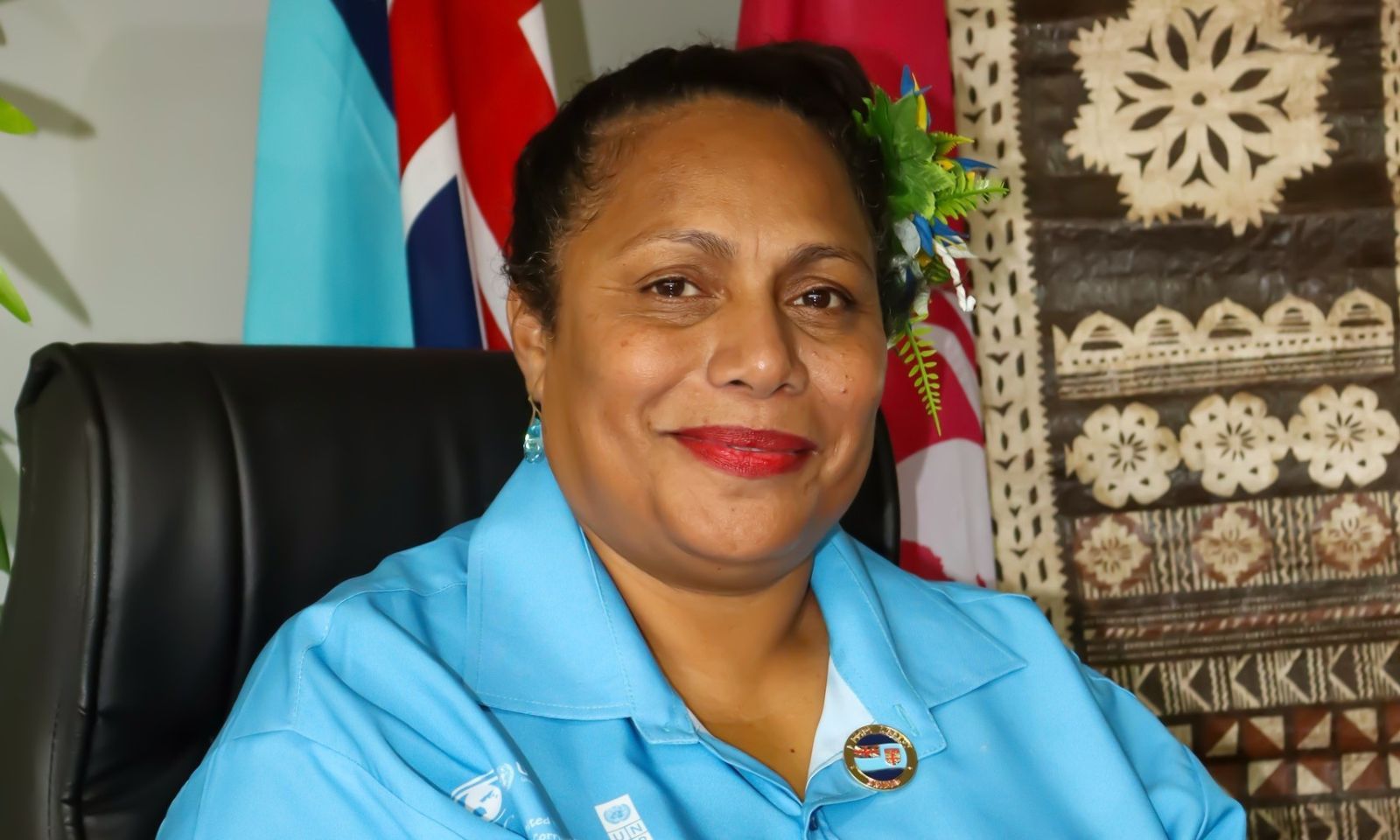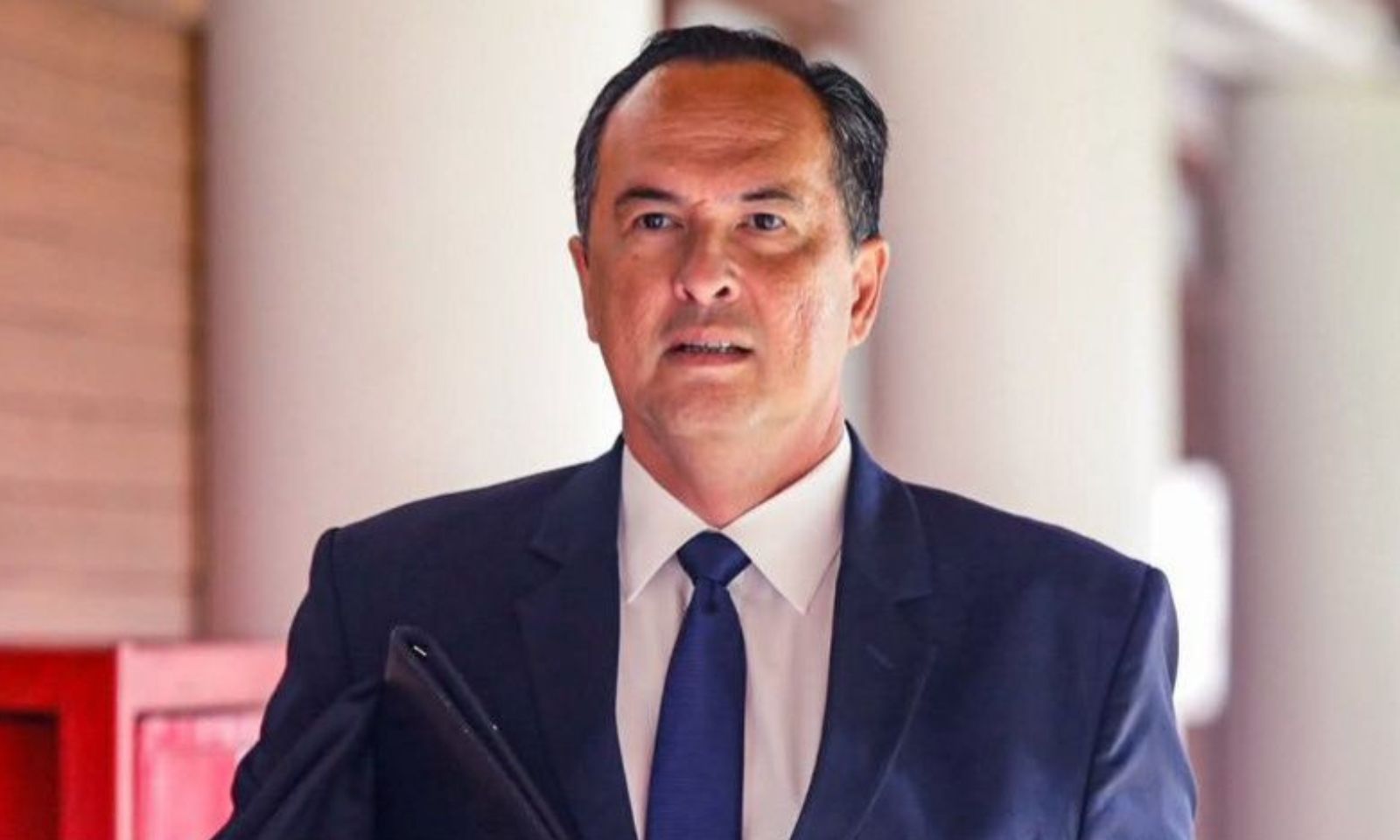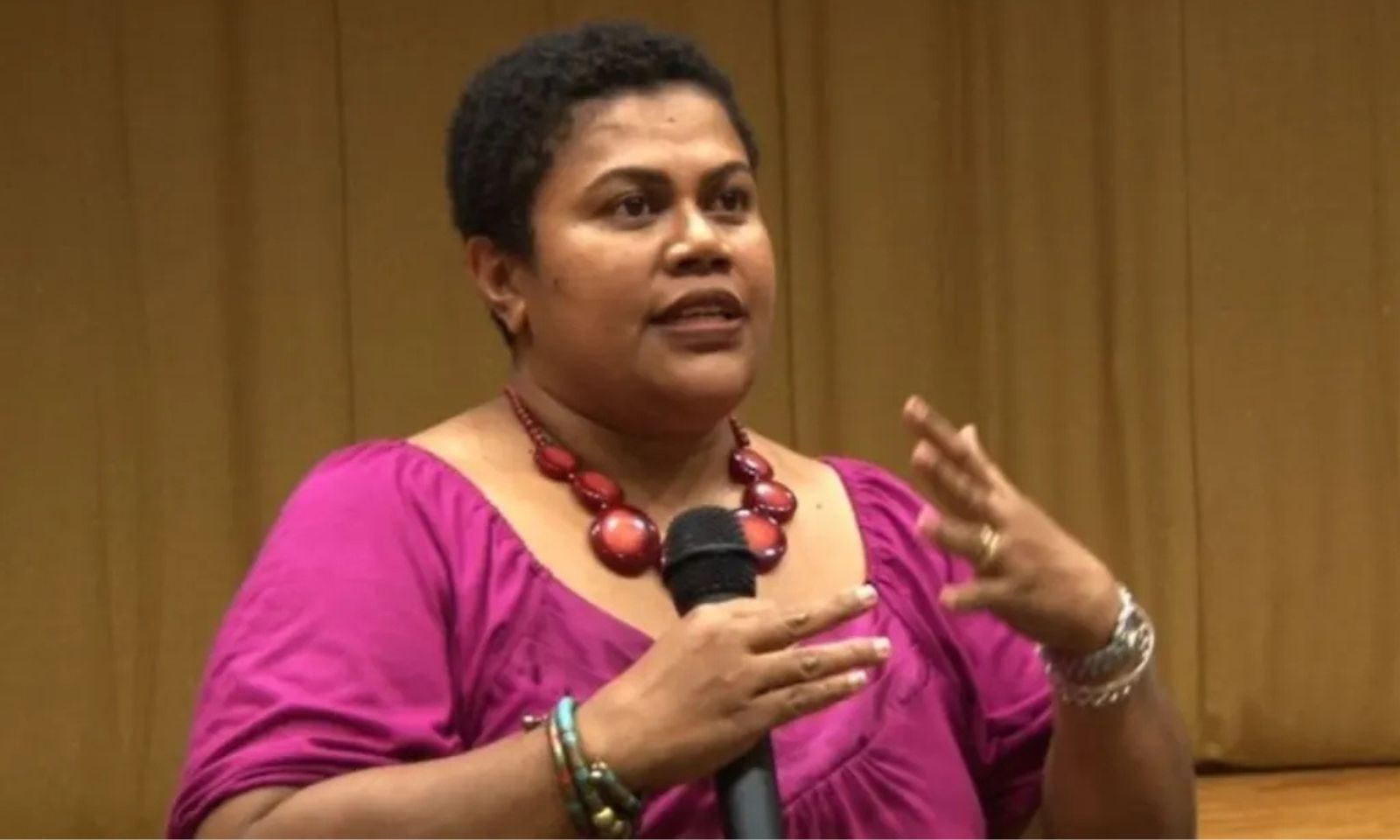

From left: Fiji's Prime Minister Sitiveni Rabuka, Suva lawyer Barbara Malimali, and President Ratu Naiqama Lalabalavu.
Photo/Fiji government/Facebook
Suspended lawyer's battle sparks debate over govt, judicial independence in Fiji
This follows a controversial inquiry that deemed Barbara Malimali's appointment as the country's anti-corruption chief legally invalid.


Top 10 Pacific Island songs you need on your summer playlist in 2025


Pacific sports wrap: 2025’s massive highs, lows and historic firsts

Excellence and possibility: Meet the new face of Pacific medicine in Aotearoa

Top 10 Pacific Island songs you need on your summer playlist in 2025


Pacific sports wrap: 2025’s massive highs, lows and historic firsts
The removal of Suva lawyer Barbara Malimali from her position as the head of the Fiji Independent Commission Against Corruption (FICAC) has mainly been seen as a personal scandal or a way for the government to clean house.
But it is also uncovering a bigger problem within Fiji's government: the issue of who should really have control over the watchdog organisation, and how the constitution protects its independence.
On 29 May 2025, Prime Minister Sitiveni Rabuka announced that at his advice, the President, Ratu Naiqama Lalabalavu, had suspended Malimali while a police investigation was underway.
The decision followed a 648-page report from the Commission of Inquiry (COI) led by Judge David Ashton‑Lewis, which stated that Malimali’s appointment was “legally invalid” and “ethically reprehensible”.
What hasn't received much attention is the COI’s conclusion that Malimali's appointment violated the principle that the branches of government should operate independently.
The situation arose because the head of FICAC, which investigates and prosecutes corruption, was supposedly under the influence of the judiciary through the Judicial Services Commission (JSC).
“The COI found that the JSC’s involvement in choosing the FICAC Commissioner went against the principle of separation of powers, which is meant to keep the judicial branch independent and separate from the executive branch.
Malimali is now challenging her removal through a legal process, arguing that it was unconstitutional. She believes the JSC should have been responsible for appointing and overseeing the FICAC Commissioner, not the government.
In her social media posts, Malimali wrote how frustrated she is: “Natural justice and fair play require that anyone adversely affected by any such inquiry should be given a copy [of the COI report] so they can challenge it.… The fish that is Fiji is rotting… We look like we have moved from a military state to a police state.”

Barbara Malimali has sought legal action against the government over her dismissal as FICAC boss. Photo/The Fiji Times/File
The COI report suggests that allowing the head of a politically significant investigative body to be overseen by the JSC, which is primarily responsible for judicial appointments and discipline, creates risks to the judiciary and may lead to political control over the watchdog.
Legal experts have spoken out. William Wylie Clarke, President of the Fiji Law Society, told local media that the Prime Minister “has no constitutional role in the appointment or discipline of the [FICAC] Commissioner”.
Clark questioned how the government could advise the President on suspending Malimali.
The COI report also suggested structural reforms, recommending the establishment of a new, balanced body, the Constitutional Offices Commission (COC), with members from both the Prime Minister's office and the Leader of the Opposition, to be responsible for appointing the FICAC chief.
The change is seen as necessary because the current system lacks independence and legitimacy.
The situation carries major political risks. The government had hoped that the COI's findings and Malimali’s dismissal would help restore credibility to FICAC.

Fiji Law Society President William Wylie Clark has criticised the government's decision. Photo/Facebook/FLS
But the inquiry also named high-ranking judges, lawyers, and politicians. In fact, just four days after the initial suspension, the President had to retract his decision to suspend Malimali, admitting it was made "in error".
Malimali’s lawyer, Tanya Waqanika, has reportedly discussed an out-of-court settlement of about NZ$1.5 million for damages to Malimali's career and unpaid salaries.
Waqanika told RNZ Pacific: “NZ$1.5 million would be a good amount to play with after your career has been ruined.”
The fallout extends beyond Malimali - it raises questions about Fiji’s anti-corruption system as the country prepares for a bigger constitutional review and upcoming general elections.
Political expert Professor Jon Fraenkel has called this a “full-blown crisis” for the coalition government, raising new concerns about flaws in the 2013 Constitution created by the previous government under Frank Bainimarama.

Tanya Waqanika is representing Barbara Malimali in court. Photo/Fiji TV
What started as a scandal over one appointment has grown into a major debate about the control of the watchdog group and whether the rules meant to ensure its independence are actually making it more vulnerable.
As Malimali’s legal case continues, the outcome could have lasting implications - not only for her but also for how governance and the rule of law are structured in Fiji.
Malimali's legal team is set to return to the High Court in Suva on Monday, 27 January 2026, to hear the court's decision on her challenge to her removal as FICAC Commissioner. The decision will determine whether her termination was lawful.